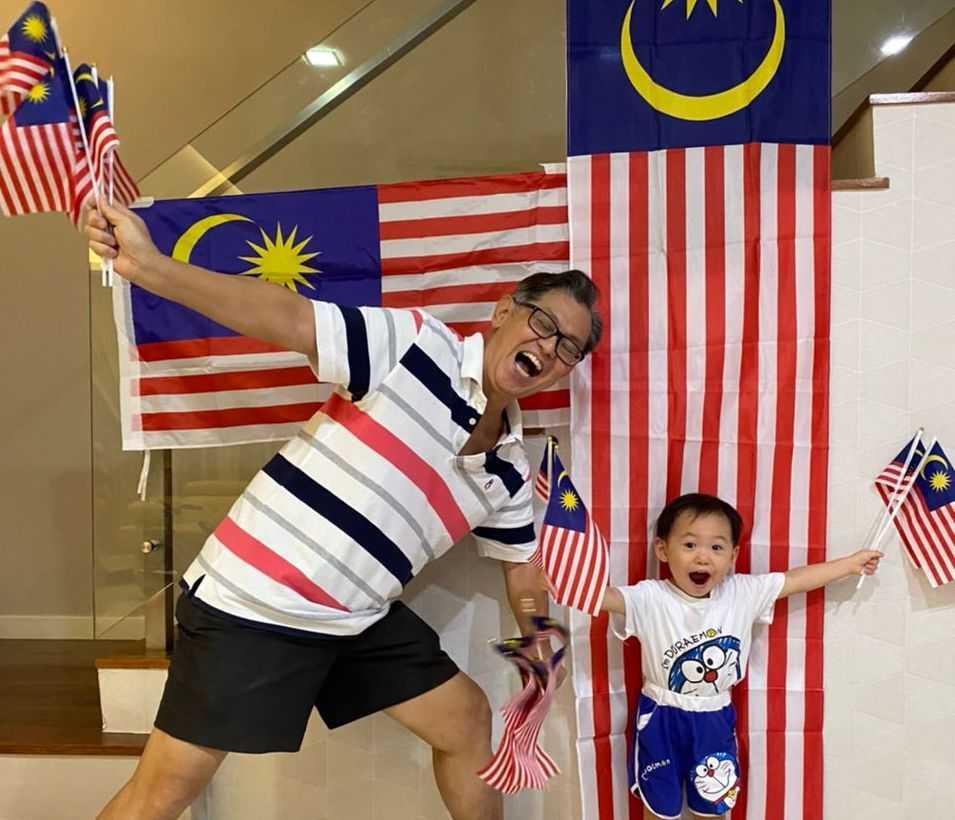One man's experience of Merdeka then and now
Ho Yoke Ming is now a grandfather but he still remembers Malaysia's very first Merdeka celebration.
Just In
Ho Yoke Ming was just seven years old when Malaysia achieved independence from British rule.
He grew up in Pahang, the third generation of his family to live in what was then known as Malaya. His ancestors had made the journey from China in the 1920s, and his father was born in 1925.
The fourth generation came with the birth of his own children, and the fifth with the arrival of his grandchildren.
Looking back on the country and how things have changed since he was a child, Ho is struck by what he describes as a change in ambience.
"The happiness used to come from the heart," he said. "But I don't see that today."
Today, he said, Merdeka celebrations come across as "planned" and "instructed".
Speaking in an interview with MalaysiaNow, Ho recalled how, as a boy in primary school, he would help his father hang the Malaysian flag along with the Pahang flag at their home in Triang, a small town in the district of Bera.
Throughout the town, the blue, red, yellow and white of the Jalur Gemilang would mingle with the black and white of the Pahang flag.
For several years, the townsfolk faithfully flew the two flags at their homes, schools and shops. But at that point, Triang was still under curfew from 6pm until 6am the following day, due to the communist threat which continued even after Merdeka.
Ho remembers the explosion of joy that greeted the news in 1960 that the sultan of Pahang had lifted the curfew completely.
That year's Merdeka celebration was more meaningful, he said – it meant that they were free.
When Ho was in secondary school, he and his schoolmates would travel from Triang to Kuantan just to join in the Merdeka celebration there.
They had to leave their homes early in the morning and pay RM2.50 for their travel fees, inclusive of food and transport.
"Many of us went," he said. "There were two to three buses. We would leave at 5am and reach Kuantan at roughly 7am, just in time for the parade."
Aside from the parade, there were also gymnastic performances and musical presentations.
"You could see happiness on everyone's face. We got together so well," Ho added.
The excitement of Merdeka would last all the way until the next day, when he and his friends would sit and recap what they had seen and heard.
Back then, Ho said, no one made any distinguishments between the different races. His own children, he sent to Chinese primary schools. But once they finished primary school, he sent them to government secondary schools.
His goal was to help his children better understand the country and its culture, and to break through the language barrier.
Last year, he brought home a flag and taught his grandchildren how to recognise it, and to sing the national anthem.
While he believes that patriotism should be cultivated from a young age, he also maintains that it is rooted in respect, not political games about racial and religious issues.
He himself was brought up in this regard. Recalling the riots of May 13, 1969, he said his parents had taught him not to lay blame on either side.
As for the New Economic Policy introduced in the aftermath of the riots, he said the programmes had benefited the other races as well.
Felda, for example, brought profit to the Malay community and helped drive the economy, he said.
His father's business in turn thrived, and he was able to afford Ho's education in the UK.
Now a happy grandfather, Ho has just one wish for the country: to see it led by a good government that takes care of the people – "and no corruption!"
Subscribe to our newsletter
To be updated with all the latest news and analyses daily.
Most Read
No articles found.
